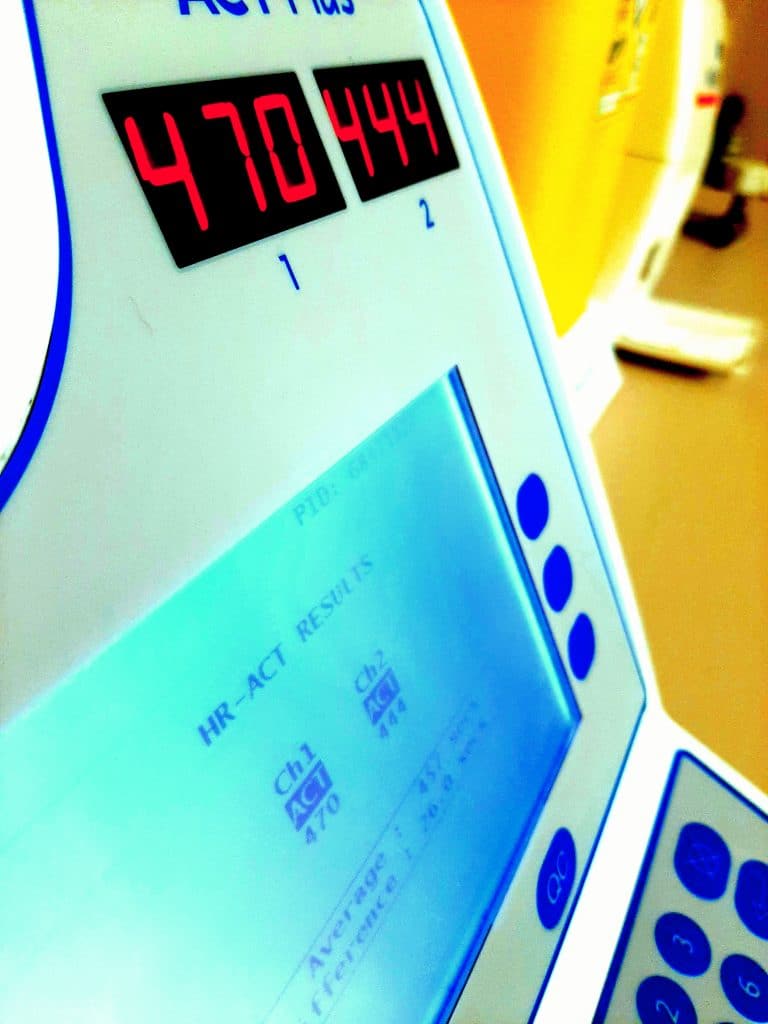Anticoagulation in Pediatric Extracorporeal Life Support—Time for a More Direct Approach?

Unfractionated heparin (UFH) is the most commonly used anticoagulant used in extracorporeal life support (ECLS), but there is a subset of patients in whom this may not be effective or feasible (heparin resistance, significant thrombosis on UFH, heparin-induced thrombocytopenia). UFH exerts its principal anticoagulation affect by activating antithrombin; the UFH–anti-thrombin complex than inactivates thrombin, activated factor X, and other clothing factors. The indirect action of UFH is problematic because of the need for antithrombin. Additional difficulties with UF each include significant in vivo intrapatient and interpatient variability as well as achieving clinical efficacy with a reliable in vitro anticoagulation test.
